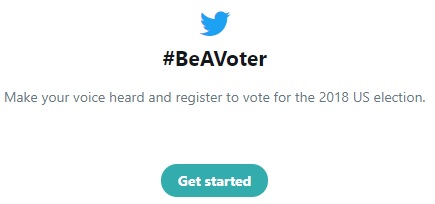Do You Vote? Or Are You A Voter?
I voted last Friday. This is, as I’ve said before, a case of identity:
I [voted] knowing in my brain of brains (as opposed to my heart of hearts) that it made no possible difference. Everyone I voted for will win or lose by a healthy margin. And even if my one vote could be the margin for victory, it wouldn’t be, with recounts and lawyers and such.
But still I voted because I believe 1) being a voter is good; 2) I am a good person; and therefore 3) I will be a voter.
It’s so much a part of my identity I would think differently (and worse) about myself if I didn’t.
Now, note that I mentioned neither candidate nor party. Who I voted for was just a means to my end of expressing my identity and beliefs.
Our donors are very similar. Nonprofits are conduits through which good people do good deeds and reinforce their own identities.
That is the basic “why” for why people give. Let’s call this “level one identity” : you are a good person doing a good thing.
Voting also gives us the opportunity to talk about an interesting debate in behavioral science: the use of nouns versus verbs.
Recent studies have shown that it is more powerful to be a noun rather than a verb. Children were more likely to help when they were asked to “be a helper” instead of asking them “to help” (study here). And adults were more likely to register to vote and to actually vote when they were asked how important it was “to be a voter” rather than “to vote” (study here). Following this lead, Twitter ran their Be a Voter voter registration campaign this year:

In short, people were more likely to go to the polls when, as in my narrative above, it was an expression of who they are, rather than what they do. This should mean a lot for nonprofits– donors as “member”, “supporter”, “advocate” , and the like can be powerful identifiers.
But wait! Research from last month found that children were less likely to keep going in their helping behaviors if they were labeled as “helpers” rather than “helping” (coverage here). And a study from last year failed to replicate the “vote” versus “voter” results (study here).
The reaction to these mixed results from Dr. Kiki Koutmeridou, DonorVoice’s chief behavioral scientist and leader of the DonorVoice Nudge Unit? “Don’t you just love research?
Absolutely. Research like this will show us the way forward. In the meantime, it gives us grist for the mill of our own experiments. It reminds us to test, rather than to blindly apply. It reminds us our context, and our audience, may be different from a lab setting. And it reminds us to test – that little differences can, but don’t always, make a big difference.
So we’d love to hear if there are any Agitator | DonorVoice readers who have tested noun versus verb in your materials.
And please vote. Both being a voter and the act of voting are powerful. If a vote didn’t have power, people wouldn’t die for it. And if a vote didn’t have power, people wouldn’t spend time and treasure to take it away.
Kevin



Wonderful – and timely, Nick!!! Add Seth Godin’s brand blog to Nick’s vote blog….. And understand in heart and mind that this is what donors are doing!!!
https://seths.blog/2013/04/the-brand-is-a-story-but-its-a-story-about-you-not-about-the-brand/